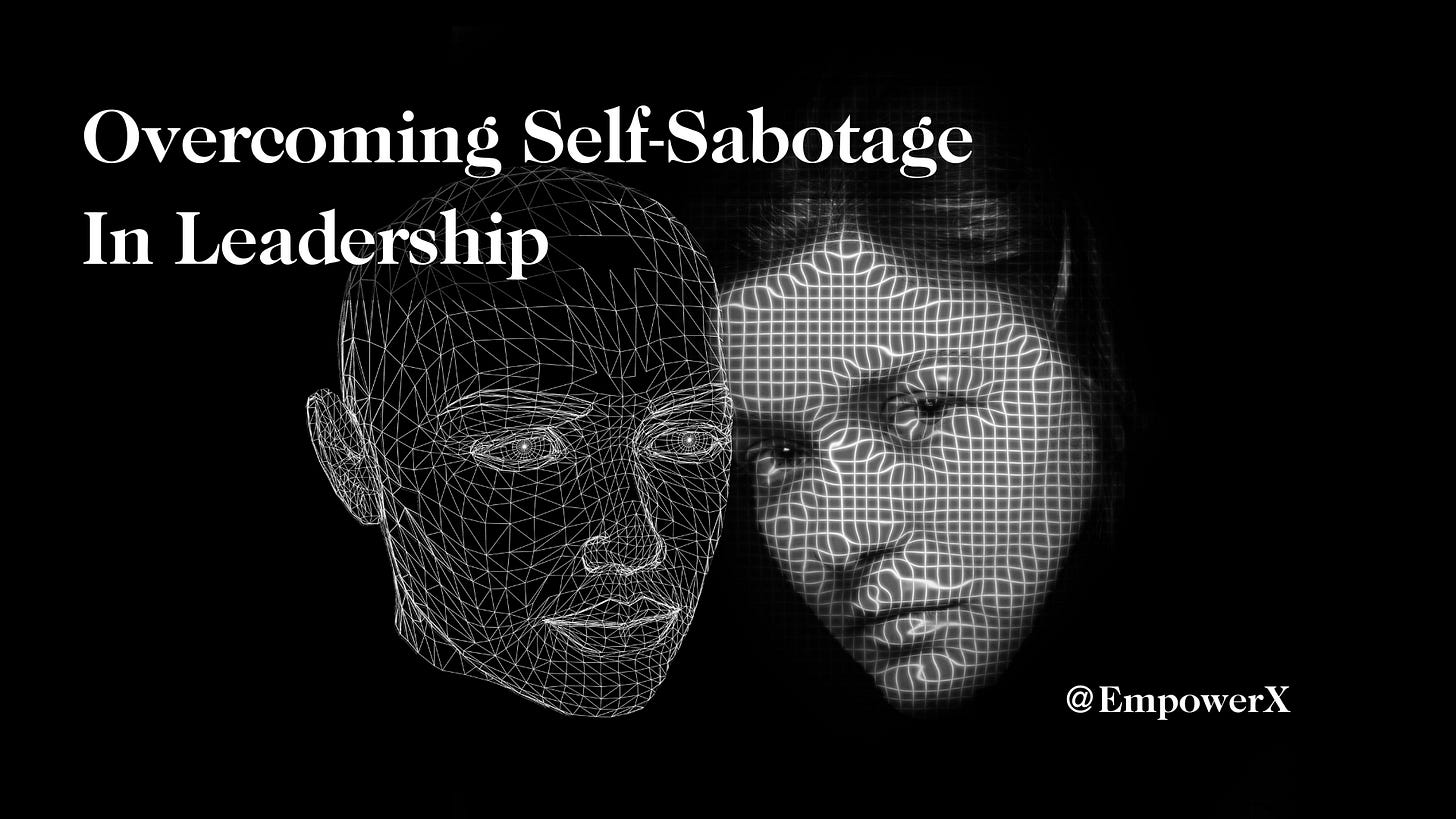Overcoming Self-Sabotage in Leadership
Lessons from Justin Welsh
Self-sabotage is not a sign of weakness; it’s a complex interplay of our fears, biases, and habits.
I’ve encountered numerous tales of leadership challenges, but few have struck a chord quite like Justin Welsh’s candid revelations about self-sabotage.
His introspections, particularly his experiences as a solopreneur, serve as a treasure trove of insights for leaders everywhere.
Let’s dissect the underpinnings of self-sabotage in leadership, drawing from Welsh’s revelations and broader neuroscience, to understand why leaders like us often trip over our own feet.
The Neuroscience of Self-Sabotage
At its core, self-sabotage is a psychological battle. Neuroscience tells us it’s rooted in the brain’s complex interplay of reward systems, fear responses, and cognitive biases. As leaders, our brains are hardwired to pursue success, but paradoxically, fear of failure or change haunts us, causing us to unintentionally undermine our efforts.
The Mirage of ‘Busyness’: A Deceptive Trap
Welsh nails it when he exposes the ‘busyness’ trap. We’ve all been there — mistaking a packed schedule for productivity. Yet, this relentless hustle often masks a lack of direction. It’s a self-defeating cycle: the busier we are, the less time we have for strategic thinking, leading to more chaos and less clarity.
My Takeaway: Emulate Welsh. Schedule ‘thinking time’. Disconnect from the flurry of tasks and ask the tough questions about direction and purpose. It’s not about doing more; it’s about doing what’s right.
Perfectionism: The Enemy of Progress
Ah, the siren call of perfectionism! It’s a familiar foe, luring us into an endless loop of tweaking and fine-tuning. Perfectionism, as Welsh rightly points out, is a guise for fear — fear of criticism, fear of failure. It hinders our ability to launch, innovate, and learn from real-world feedback.
My Takeaway: Adopt the ‘good enough’ principle. Progress, not perfection, should be our mantra. An 80% solution implemented is infinitely better than a 100% solution that never sees the light of day.
The Echo Chamber: A Comfortable Yet Dangerous Zone
Leaders often unknowingly surround themselves with yes-men, basking in unwavering agreement and approval. Welsh’s experience highlights the danger of this echo chamber. It deprives us of critical feedback, essential for growth and improvement.
My Takeaway: Step out of your comfort zone. Seek honest, brutal feedback. Surround yourself with people who challenge your ideas and push you to be better.
Shiny Object Syndrome: The Allure of New Over Now
Welsh’s confrontation with ‘Shiny Object Syndrome’ is a testament to a common pitfall among leaders. We’re naturally drawn to new, exciting opportunities, often at the expense of current commitments. This constant chase can lead to a string of uncompleted projects and unmet goals.
My Takeaway: Focus and consistency are key. Create systems that anchor you to your commitments. A dedicated time for critical tasks, like Welsh’s 90-minute writing block, ensures that existing projects don’t fall by the wayside in pursuit of new ones.
Moving Beyond Self-Imposed Barriers
Welsh’s journey underscores a vital truth: self-awareness is the cornerstone of overcoming self-sabotage. Recognizing and accepting our tendencies to self-sabotage is the first step towards change.
My Takeaway: Regular self-reflection is crucial. Understand your patterns of behavior, acknowledge your weaknesses, and actively work against them. Remember, the greatest battles we face as leaders are often within ourselves.
Embrace the Challenge
Justin Welsh’s experience with self-sabotage is not just a cautionary tale; it’s a blueprint for transformation. As leaders, we must confront the uncomfortable truths about ourselves, challenge our internal narratives, and break free from the shackles of self-defeating behaviors.
Self-sabotage is not a sign of weakness; it’s a complex interplay of our fears, biases, and habits. By understanding and addressing these factors, we empower ourselves to be better leaders, better visionaries, and better humans. The road to self-improvement is fraught with challenges, but as Welsh’s journey shows, it’s a road worth traveling.
References:
Welsh, J. (November 18, 2023). “Why We Often Sabotage Ourselves”
Why We Often Sabotage Ourselves | Justin Welsh
Discover unique insights on overcoming self-sabotage in solopreneurship. Learn about busyness traps, perfectionism…www.justinwelsh.me
Magdalena’s Manifesto:
I believe that every leader has a positive, long-term impact on their organization and community.
I am thrilled to bring my experience and passion to the table. I’ve coached and consulted with over 100+ thought leaders, managers, and educators. Click here and let’s talk



